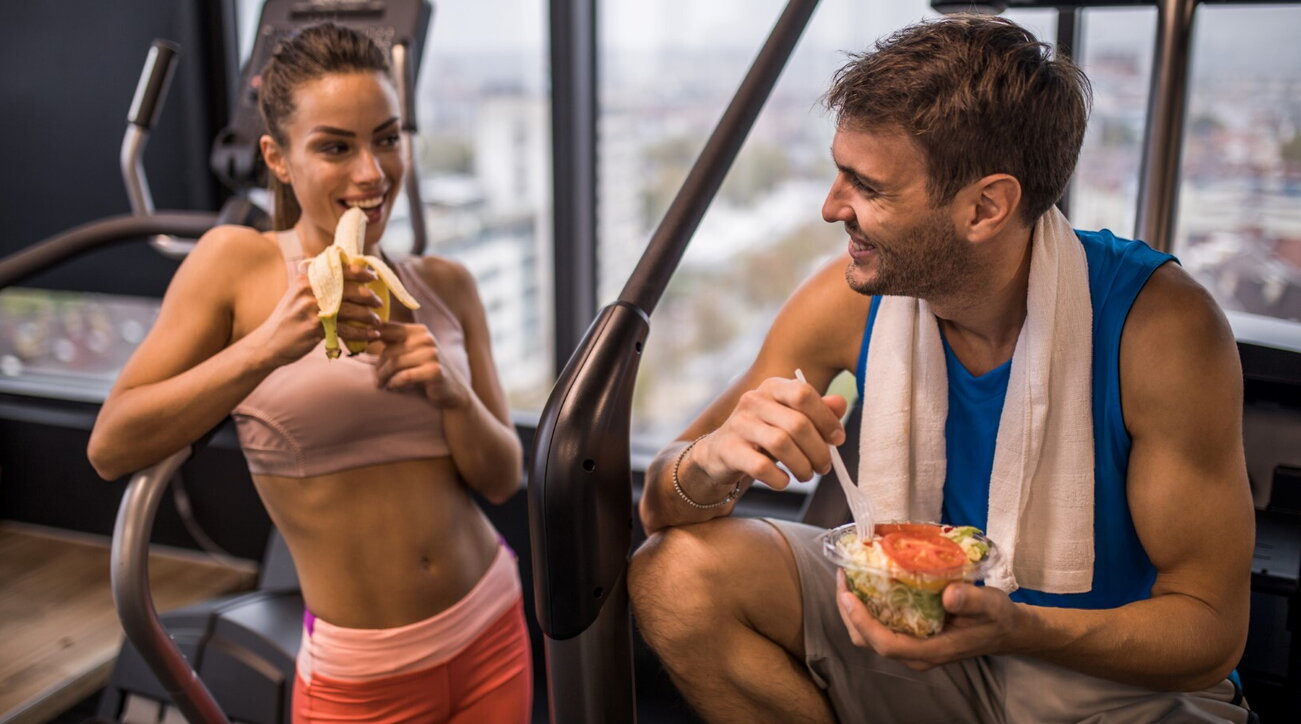TO EACH HIS OWN
– First of all, it should be noted that the ideal composition of
pre and post workout meals
is closely related to
individual characteristics:
the amount of energy we need depends on our physical characteristics, on the type of workout we are going to face, on the goals we aim to achieve (muscle strengthening, fat burning or more). We also start from the premise that the following indications are aimed at those who perform physical activity at a level
amateur
: those who practice sport at a competitive or even professional level are usually followed by specialized trainers and therefore have all the information they need. The following advice and suggestions are therefore general rules of healthy eating, which everyone can experiment and adapt to their needs.
NEVER SKIP MEAL –
If you work out during the lunch break, you need to carefully plan meals and snacks according to your daily rhythms. It’s definitely not okay to hit the gym after a full meal, but it’s just as counterproductive to train on an empty stomach for hours, especially if you’ve indulged in a frugal breakfast. Yes, then, to one
mid-morning snack,
based on fruit and some dry biscuits, and a light lunch after training. If, on the other hand, we decide to anticipate lunch and train in the early afternoon, remember that, in principle, between the last complete meal and the workout must pass
about three hours,
to allow the stomach to complete digestion. If the fasting period is longer, however, the risk is to find yourself short of energy in the middle of the workout.
To give up lunch completely is
an error
not to commit: prolonged fasting does not increase the benefits of training at all and does not help us lose weight: it will only have the effect of making us hungry for the next meal, prompting us to eat more.
PRE-WORKOUT SNACKS –
If we had breakfast at 8 in the morning and want to work out at 13, 11 is the ideal time to have a snack. Given that the time taken to assimilate energy supplies is closely linked to the glycemic index of the foods we consume, it is better to favor low-index foods, that is, foods that release energy slowly and gradually.
Mid-morning
a mix of proteins and carbohydrates can be useful, for example a yogurt with a fruit and some biscuits. One
light snack,
based on some crackers, or an apple, it can be consumed up to 30 minutes before training. We exercise extreme caution in what we eat if our workout takes place in
pool
(swimming or water aerobics): in this case it is essential that the stomach is not engaged in digestive activity to avoid the risk of dangerous congestion.
AFTER WORKOUT –
There are sportsmen who prefer to wait a while, after training, before having lunch, but it is usually recommended, especially for amateur sports, to have lunch immediately after the end of the workout, to better manage recovery and assimilation of carbohydrates. The
rules of healthy eating
they are always valid and, in normal situations, they are sufficient to compose a balanced and varied meal. It is false that eating at the end of a workout nullifies the work done: of course, the free binge is not appropriate, but it is equally essential, after the gym, to support the body’s energy reserves in order not to incur unpleasant inconveniences. If we are following
a low-calorie diet
it is necessary to ask the nutritionist to adapt the food plan on the days when we dedicate ourselves to sport.
For everyone else,
given that physical activity, especially aerobic and high-intensity activity, consumes the reserves of sugars, the most suitable “refill” meal is based on carbohydrates, such as pasta or rice, preferably wholemeal ones, and vegetables. However, a balanced mix of carbohydrates and proteins is also good, especially white meat, fish or eggs, and seasonal vegetables.
HYDRATION –
If we have sweated a lot, it is essential to replenish the fluids lost during training as soon as possible. For amateur sportsmen, simple mineral water is sufficient, without resorting to saline supplements or energy drinks. A bottle of water should also follow us during the workout, to rehydrate us even while the workout is in progress. Better to avoid sugary drinks, to limit the introduction of calories, and alcoholic ones, whose ethanol content interferes with protein synthesis and therefore the repair process of muscle micro-injuries caused by training.
